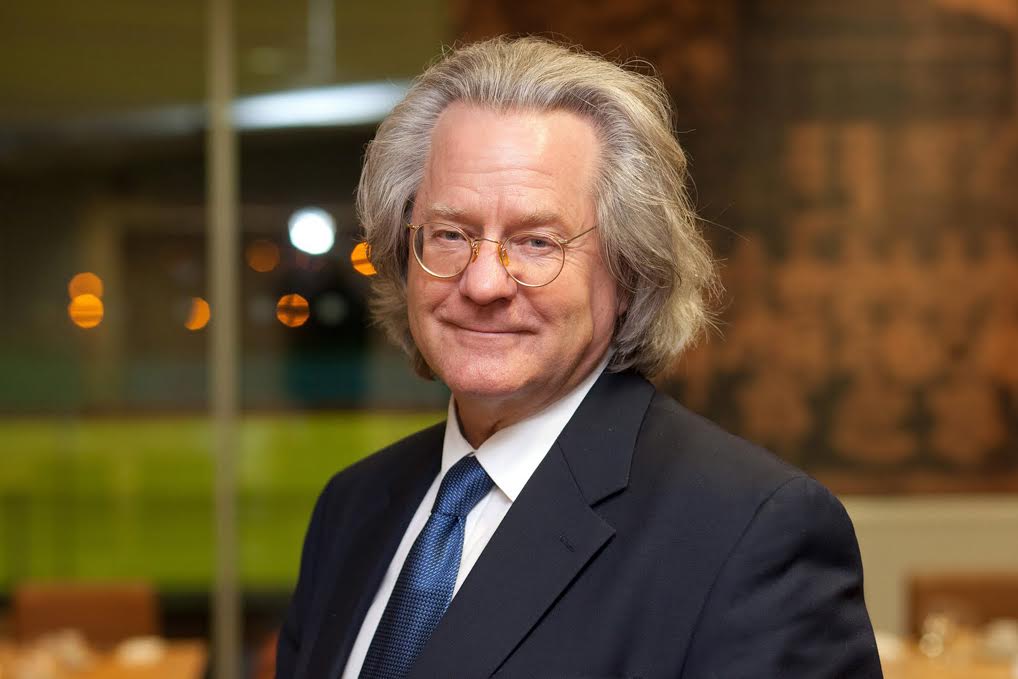Symposium: The Democratic Case for a Written Constitution for the UK
Speaker(s):
Associated with:
Notes & Changes
This event will run in a hybrid format.
If you would like to attend this event in person at the Sir Joseph Hotung Auditorium, Bonavero Institute of Human Rights, please email bonavero-events@law.ox.ac.uk with the subject '28 Oct Symposium - In Person' by 27 October 2021. Please note that since seating is limited, we cannot guarantee that you will be able to attend the event in person. Seats will be assigned on a first come, first served basis. If your place is not confirmed, you can still attend the event online.
If you would like to attend this event online, register here to receive the Zoom webinar link.
Please note that this event may be recorded.
The United Kingdom is one of only a handful of nation states without a formal written constitution. Long a marker of British exceptionalism, the UK constitution has come under increasing strain in the past decades, particularly through the devolution of authority to its constituent nations. The symposium brings together scholars, politicians, and civil society representatives to discuss whether the United Kingdom should adopt a written constitution, framed around Prof Jeff King’s article The Democratic Case for a Written Constitution.
Prof King argues that ultimately only direct authorship through the people and their elected representatives, and not mere acquiescence or ratification of the status quo, democratically legitimises the fundamental rules that govern the United Kingdom. He outlines in some detail how a constitutional convention should be organised to ensure full and equal participation of citizens, including selecting members of the convention by sortition. Perhaps most significantly, Prof King claims that it is essential that the constitution contain an expiration date, requiring every generation to hold their own constitutional convention.
Author

Jeff King is a Professor of Law at the Faculty of Laws, University College London, a Visiting Professor at the Faculty of Law, University of Oxford and a former Legal Adviser to the House of Lords Constitution Committee. Jeff's research interests include UK and comparative public law (including international law), constitutional theory and socio-legal studies. Within these, he is particularly interested in the relationship between public law, democracy and social policy. He is currently working on the use and abuse of delegated powers, comparative legal responses to Covid-19, and is writing a book on the social dimension of the rule of law. He is also co-editing the Cambridge Handbook of Constitutional Theory with Prof Richard Bellamy, whose publication is expected in 2021.
Chair

Kate O'Regan is Professor of Human Rights Law and Director of the Bonavero Institute of Human Rights. She is a former judge of the South African Constitutional Court (1994 – 2009). In the mid-1980s she practiced as a lawyer in Johannesburg in a variety of fields, but especially labour law and land law, representing many of the emerging trade unions and their members, as well as communities threatened with eviction under apartheid land laws. In 1990, she joined the Faculty of Law at UCT where she taught a range of courses including race, gender and the law, labour law, civil procedure and evidence. Since her fifteen-year term at the South African Constitutional Court ended in 2009, she has amongst other things served as an ad hoc judge of the Supreme Court of Namibia (from 2010 - 2016), Chairperson of the Khayelitsha Commission of Inquiry into allegations of police inefficiency and a breakdown in trust between the police and the community of Khayelitsha (2012 – 2014), and as a member of the boards or advisory bodies of many NGOs working in the fields of democracy, the rule of law, human rights and equality.
Discussants
The discussants were chosen to provide perspectives from all four constituent nations of the United Kingdom, as any proposal for a written constitution is likely to be viewed differently in Belfast, Cardiff, Edinburgh and Westminster:
Prof Nick Barber (Fellow of Trinity College, University of Oxford)

Nick Barber joined the Oxford Law Faculty in 1998 as a Fixed Term Fellow at Brasenose, moving to a tenured Fellowship at Trinity College in 2000. He holds an MA from Oxford and the BCL, and is a non-practicing barrister and member of Middle Temple. In 2013 he was appointed University Lecturer in Constitutional Law and in 2017 he was appointed Professor of Constitutional Law and Theory. In 2012 and 2013 he was a visiting Professor at Renmin University, China. He has lectured extensively on constitutional law and theory in many countries. He has published many papers in these areas, and his book - The Constitutional State – was published in 2011, and has been widely reviewed. His second book, The Principles of Constitutionalism, was published by Oxford University Press in summer 2018. His most recent book, The United Kingdom Constitution: An Introduction will be published in the Clarendon Law Series in late 2021. He was founder editor of the United Kingdom Constitutional Law Blog, and he was a co-author, with Jeff King and Tom Hickman, of the blog post that sparked the litigation in Miller, a post which first advanced the arguments eventually adopted by the High Court and Supreme Court. Alongside Richard Ekins, he is co-director of The Programme for the Foundations of Law and Constitutional Government. He is currently Associate Dean (Research).
Joanna Cherry QC (MP for Edinburgh South West)

Joanna Cherry QC MP has been the Member of Parliament for Edinburgh South West since 2015. She was SNP Spokesperson on Justice and Home Affairs from 2015-2021 and is currently Deputy Chair of the Joint Committee on Human Rights. She has been a leading voice in the campaign to keep the Human Rights Act and to stay in the ECHR. Joanna called to the bar in 1995 and took silk in 2009. She previously held the offices of Standing Junior Counsel to the Scottish Government and Advocate Depute and was one of the first specialist sex crimes prosecutors in the Crown Office’s pioneering National Sex Crimes Unit. In 2018 she was a co-litigant in the case in which the CJEU held Article 50 could be unilaterally revoked and in 2019 she was the lead litigant in Cherry v Advocate General for Scotland, one of two cases which established that the prorogation of parliament was unlawful.
Prof AC Grayling (Master, New College of the Humanities)

AC Grayling CBE MA DPhil (Oxon) FRSA FRSL is the Founder and Principal of New College of the Humanities at Northeastern University, and its Professor of Philosophy. He is also a Supernumerary Fellow of St Anne's College, Oxford. He is the author of over thirty books of philosophy, biography, history of ideas, and essays. He was for a number of years a columnist on the Guardian, the Times, and Prospect magazine. He has contributed to many leading newspapers in the UK, US and Australia, and to BBC radios 4, 3 and the World Service, for which he did the annual 'Exchanges at the Frontier' series; and he has often appeared on television. He has twice been a judge on the Booker Prize, in 2014 serving as the Chair of the judging panel. He is a Fellow of the Royal Society of Arts, a Fellow of the Royal Society of Literature, a Vice President of Humanists UK, Patron of the Defence Humanists, Honorary Associate of the Secular Society, and a Patron of Dignity in Dying.
Prof Carwyn Jones (Aberystwyth University)

Professor Rt. Hon. Carwyn Jones is a former First Minister of Wales, a role he held between 2009 and 2018. He left the Welsh Parliament in 2021 after representing the Bridgend constituency for twenty-two years which included eighteen consecutive years in government. Before politics he practised at the Bar for ten years and was a Professional Tutor on the Bar Vocational Course at Cardiff University. He is now a Professor at Aberystwyth University with a strong interest in constitutional law. He is also Bencher at Gray’s Inn. Since leaving politics, he has also been involved in broadcasting and business consultancy and is also involved with a number of charities. His autobiography was published in 2020. In his spare time he enjoys sport, reading and travel and is now trying to catch up with a list of tasks around the house that his family tell him he has neglected for the past twenty years.
Prof Christopher McCrudden (Queen’s University Belfast)

Christopher McCrudden is Professor of Human Rights and Equality Law at Queen’s University Belfast and William W Cook Global Law Professor at the University of Michigan Law School. Until 2011, he was Professor of Human Rights Law at the University of Oxford, and a Fellow of Lincoln College, Oxford. He studied law at Queen’s University Belfast, Yale University, and Oxford University. He holds a first law degree from Queen’s, an LL.M. degree from Yale, two doctorates from Oxford University (a D.Phil and a DCL), and an honorary LL.D. from Queen’s. From 2011 to 2014, he held a Major Research Fellowship from the Leverhulme Trust. In 2013-14 he was a Fellow at the Straus Institute at New York University Law School. In 2014-15, he was a Fellow of the Wissenschaftskolleg zu Berlin, and is currently Chair of its Advisory Committee. He is a practicing Barrister at Blackstone Chambers in London, and has been called to both the Northern Ireland Bar and the Bar of England and Wales. His main research focus is on human rights law. Currently, his research deals with the foundational principles underpinning human rights practice. He was awarded the American Society of International Law’s prize for outstanding legal scholarship in 2008. Professor McCrudden is a Fellow of the British Academy and (from 2018) a Member of the Royal Irish Academy.
Dr Hannah White (Deputy Director, Institute for Government)

Dr Hannah White is Deputy Director of the Institute for Government. She has strategic oversight of the Institute’s programme of work on government, parliament and the civil service, focusing on external relationships and impact. She has extensive knowledge of Westminster and Whitehall based on over a decade of experience in parliament and the civil service. Before running the Committee on Standards in Public Life in the Cabinet Office, she was a clerk in the House of Commons managing select and legislative committees and advising on parliamentary procedure. She received an OBE in the 2020 Birthday Honours for services to the Constitution. Hannah is a regular commentator for radio and television and has appeared on BBC1’s Andrew Marr Show, Radio 4’s Westminster Hour, World at One, the Today programme, Newsnight, BBC News and Sky News. She is a frequent contributor to the Institute’s comment pages and also writes for a range of media including The Guardian, The Times, The Telegraph and Prospect magazine. Hannah joined the Institute for Government in May 2014 and leads the Institute’s work on parliament.
Across two 90-minute sessions, the discussants will offer their reflections on the article and its main arguments. Prof King will then have an opportunity to respond before we open to questions from attendees. Pandemic-permitting, we hope to hold a hybrid in-person/ online event with a dedicated online facilitator for comments and questions. Those of you who are able to attend in person are most welcome to join us at the Bonavero Institute.


 Add to calendar
Add to calendar


